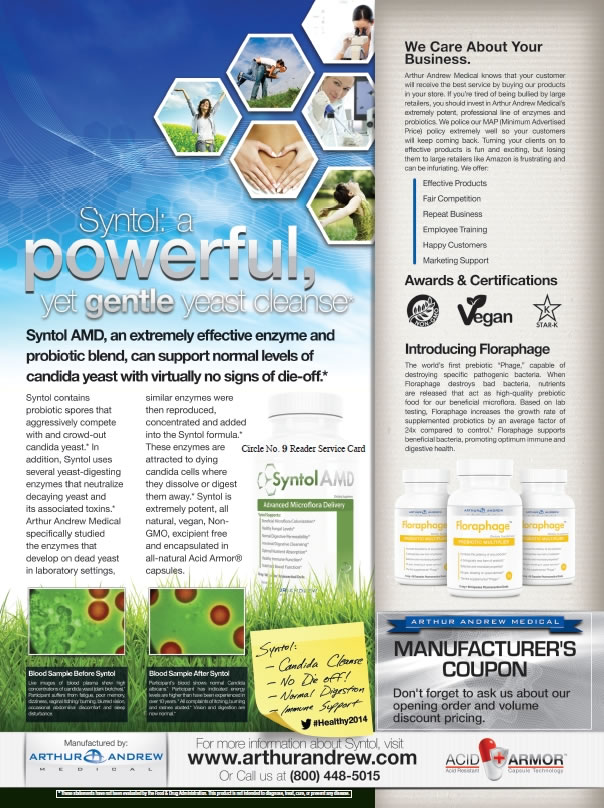Due to a growing interest in food products and supplements with “clean labels,” it is important to provide consumers with diverse options that meet their wide range of lifestyle needs. Many savvy shoppers to question the integrity of nutritional and ingredient information on product labels.
A kosher or halal symbol on a label is greatly valued; many consumers believe the symbols indicate there is “an additional pair of eyes” present during a product’s manufacturing process. In fact, more than half of Americans buy Kosher products because they associate them with health and safety, according to KosherFest (1).
Market research firm Mintel reported that “sales of kosher foods totaled $12.5 billion in 2008, a 64% increase since 2003” (2). Also, the Islamic Food and Nutrition Council of America (IFANCA) projects that annual halal product sales in the United States will reach $20 billion by 2015 (3).
The overall increase in expenditures shows that consumers today are driven to purchase products for reasons such as quality (62%) or general healthfulness (51%) (2). With an eye on maintaining well-being, kosher and halal consumers are looking for proper supplements that meet their strict dietary needs (4). To accommodate kosher and halal shoppers and those looking for high-quality products, be sure to include these “sacred supplements” on your shelves.
General Guidelines
Kosher supplements follow Jewish dietary standards, while halal supplements follow Muslim dietary law. The dietary laws have their differences, but both include strict, non-negotiable production and processing standards for food and supplements. The standards ensure quality through aspects such as sanitation, supervision and inspection within facilities (5). Ingredients must also be tracked to a specific origin. Certification processes are thorough, which makes for a trustworthy final product.
The majority of kosher and halal consumers will stay away from supplements that contain certain animal-derived ingredients (6), including those used to make the capsule itself. Ingredients to avoid often include shellfish (making some forms of glucosamine, green-lipped mussel extract and others inappropriate), ingredients derived from animals not slaughtered according to religious rules (like deer antler velvet, which are shed), bovine-derived ingredients (like some types of chondroitin) and any flavors or additives with alcohol for halal products (like certain tinctures) (7).
There are various important subtleties, too. For instance, some types of vitamin D supplements are derived from non-kosher fish oil or made with non-kosher gelatin in a microencapsulation process (7).
When formulating a kosher or halal dietary supplement, manufacturers often avoid gelatin altogether or use kosher gelatin, certified halal gelatin made from fish bones or halal-slaughtered cattle (8). Alternative supplements are made in the form of tablets, powders, liquids or vegetable capsules in order to avoid dietary issues with pork. Supplements encapsulated in fish gelatin, bovine gelatin or plant gums can sometimes be kosher-certified and halal-approved. The vegetarian capsules tend to be the safest purchase for consumers due to their “almost universal acceptability” (6). However, plant materials are only halal-approved if they do not contain alcohol or other intoxicants (6).
The Certification Process
National agencies, a local board of Kashrut or an Orthodox Rabbi are able to provide kosher supervision, and most large Kashrut organizations have an official symbol or logo (9).
In both kosher and halal certification processes, a qualified administrator performs a thorough examination of the facility and gathers required information such as ingredient lists, quality control and cleaning procedures. If conditions are up to standards, a contract is presented. However, the process doesn’t end once everything is signed, sealed and delivered. Frequent supervisory inspections are made to the facility to ensure that the processes continue to meet certification standards.
The kosher and halal certification processes are nothing short of rigorous. Consumers continue to purchase kosher-certified and halal-approved products because of the valued quality and reliability that comes with them. WF
References
1. KosherFest, “Why Americans Buy Kosher,” www.kosherfest.com/about-kosher/kosher-industry-facts, accessed Aug. 20, 2014.
2. Mintel, “3 in 5 Kosher Food Buyers Purchase for Food Quality, Not Religion,” Feb. 17, 2009, www.mintel.com/press-centre/food-and-drink/3-in-5-kosher-food-buyers-purchase-for-food-quality-not-religion, accessed July 16, 2014.
3. The Islamic Food and Nutrition Council of America, “Halal Digest,” www.ifanca.org/Pages/HalalDigestNewsLetter.aspx, accessed July 16, 2014.
4. Kosher Quest, “Vitamins, Supplements & Medication,” www.kosherquest.org/kq_healthintro.php, accessed July 23, 2014.
5. Packaged Facts, MarketTrend: Kosher- and Halal-Certified Foods in the U.S., May 1, 2009, www.packagedfacts.com/MarketTrend-Kosher-Halal-1282406/, accessed July 23, 2014.
6. “Nutritional Supplements for Halal and Kosher Consumers,” www.nutrasolutions.com/articles/nutritional-supplements-for-halal-and-kosher-consumers, accessed July 23, 2014.
7. Star-K, www.star-k.org/kashrus/kk-medi-glucosamine.htm, accessed Aug. 20, 2014.
8. Islamic Food and Nutrition Council of America, www.ifanca.org/Pages/Faq.aspx, accessed Aug. 20, 2014.
9. Kosher Certification, www.ok.org/v1/Content.asp?ID=116, accessed Aug. 20, 2014.
Published in WholeFoods Magazine, October 2014









